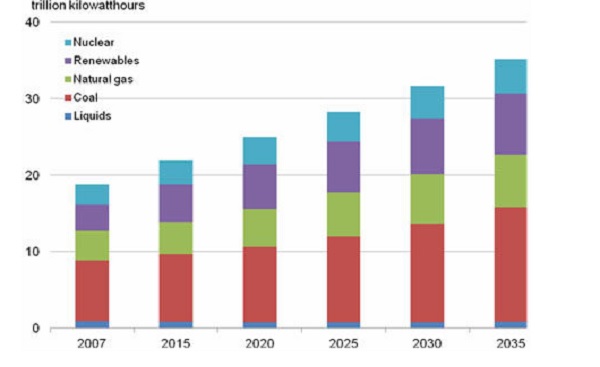Why Cost Accountant is Important in Businesses. In today’s competitive business world, it’s critical for companies to make informed decisions regarding their finances. This is where cost accountants come in – they play a crucial role in helping businesses manage their financial resources by providing valuable insights and analysis on costs, budgets, and profitability. A cost accountant is responsible for collecting, analyzing, and interpreting financial data to help a company make sound financial decisions. By doing so, they help businesses to maximize their profits, minimize costs, and improve their overall financial performance. In this article, we’ll explore why cost accountants are important in businesses and the many benefits they bring to the table.
So, do you want to know the importance of a Cost Accountant for your business? Then take time to go through this article. It gives comprehensive details of the Importance of cost accounting in businesses Definition of cost accounting, the types of costs, and the Objective of cost accounting for your business.
Completefmc.com Business Tips:
Table of Contents
Furthermore, Complefemc.com give comprehensive business information on each subject matter under consideration. That is why we advise you to stick to this website for your business and financial information. So, do you desire articles on Business Tips for your Business plan and feasibility study, C.A.C. Incorporation, Accounting and Auditing, Tax Management, Mining, travel and tours, feasibility analysis, or real estate management, contact [email protected] or +234 8034347851
Furthermore, check out these related topics below.
- Who is a bookkeeper?
- Benefits of a Cost Accountant for Your Business
- SCUML Certification: This is how to go about it
- Accounting Cycles for business start-ups
- Jobs in the Accounting Profession
- Basic Accenting for your business
- GAAP for small business
- Statement of Affairs for CAC Annual Returns
So, what is cost accounting?
Cost accounting is a branch of accounting that deals with the process of recording, analyzing, and reporting costs associated with a business operation. It involves the identification and measurement of costs, the assignment of costs to products or services, and the analysis of cost data to provide information for management decision-making.
In addition, the main objective of cost accounting is to provide information to managers that can help them make informed decisions about pricing, budgeting, and operational efficiency. It is used to determine the cost of goods sold, calculate the profitability of a product or service, and identify areas where cost reductions can be made.
Cost accounting is an important tool for businesses of all sizes, as it helps to control costs and improve profitability. It is particularly important for manufacturing businesses, as it enables them to track the cost of production and ensure that they are producing goods at a profit. However, cost accounting can also be applied to service-based businesses, where it can help to measure the cost of providing a service and identify areas where efficiency can be improved.
Why Cost Accountant is Important in Businesses:
And, then Importance of cost accounting in businesses?
Cost accounting is essential for businesses for the following reasons:
- Helps in pricing decisions: Cost accounting provides detailed information on the cost of producing goods and services, which is essential for pricing decisions. By understanding the cost of production, businesses can set appropriate prices that will generate sufficient profits.
- Assists in budgeting: Cost accounting helps businesses to create and monitor budgets. By analyzing past costs and projecting future costs, businesses can make informed decisions about resource allocation and cash flow management.
- Facilitates decision-making: Cost accounting provides managers with accurate and relevant information for decision-making. This includes information about product profitability, cost reduction opportunities, and performance metrics that can help managers to make informed decisions about investments, pricing, and resource allocation.
- Improves operational efficiency: Cost accounting provides insights into the cost drivers of a business. This enables managers to identify areas of inefficiency and take corrective action to improve operational efficiency. That is Why Cost Accountant is Important in Businesses
- Enhances control over costs: Cost accounting provides a mechanism for monitoring and controlling costs. By setting targets, tracking actual costs, and analyzing variances, businesses can identify areas where costs are exceeding expectations and take corrective action.
Overall, cost accounting is an important tool for businesses to make informed decisions, manage costs, and improve profitability. It enables businesses to understand the cost of production, set appropriate prices, monitor performance, and make necessary adjustments to achieve their goals.
And so, the Objective of cost accounting:
The objective of cost accounting is to provide information about the costs incurred in producing goods or services within an organization. This information can be used by managers to make informed decisions about pricing, product mix, cost control, and performance evaluation.
Cost accounting involves the measurement, analysis, and reporting of costs, as well as the interpretation of cost data to support decision-making. It helps organizations to understand the costs associated with each stage of their operations, including raw material acquisition, production, and distribution.
Furthermore, the main objective of cost accounting is to determine the actual cost of production for each unit of output. This involves tracking all the costs associated with producing a product or service, including direct materials, direct labor, and manufacturing overhead. By analyzing these costs, cost accountants can help managers to identify areas where costs can be reduced or eliminated, and optimize production processes for maximum efficiency.
Overall, the objective of cost accounting is to provide accurate and relevant information about costs to help organizations make better decisions and improve their profitability.
Why Cost Accountant is Important in Businesses
Types of Costs by the Cost Accountant:
Cost accountants typically classify costs into various categories based on their characteristics and relevance to decision-making. Here are some of the most common types of costs:
- Direct costs: These are costs that can be directly traced to a specific product, service, or department. Examples include raw materials, direct labor, and direct expenses.
- Indirect costs: These are costs that cannot be directly traced to a specific product, service, or department. Examples include rent, utilities, and administrative salaries.
- Fixed costs: These are costs that do not change with changes in the level of production or sales. Examples include rent, insurance, and property taxes.
- Variable costs: These are costs that vary with changes in the level of production or sales. Examples include direct materials, direct labor, and sales commissions.
- Semi-variable costs: These are costs that have both fixed and variable components. Examples include utilities and maintenance expenses.
- Opportunity costs: These are the costs of forgoing the next best alternative. For example, if a company decides to produce one product, the opportunity cost is the revenue that could have been earned by producing another product instead. Why Cost Accountant is Important in Businesses is Reliable.
- Sunk costs: These are costs that have already been incurred and cannot be recovered. Sunk costs are not relevant to decision-making.
- Marginal costs: These are the additional costs incurred by producing one additional unit of output.
- Average costs: These are the total costs divided by the number of units produced.
Did you get to know why the Cost Accountant is still important for your business? Can you do these by yourselves? As you can see, by understanding the different types of costs, cost accountants can help managers and CEOs to make better decisions about pricing, product mix, cost control, and performance evaluation.
Why Cost Accountant is Important in Businesses
So, the Importance of Cost Accountants in Businesses:
Now, we want to deal with the importance of a Cost Accountant in your Business. So, relax and go through. If you have a challenge contact us.
A. Control over costs
B. Decision-making
C. Product pricing
D. Budgeting and forecasting
E. Compliance with regulations
How Cost Accountant assists in Control over Costs:
Furthermore, Cost Accountants play a critical role in helping organizations control their costs. Here are a few ways in which cost accountants assist in cost control:
- Cost Analysis: Cost accountants analyze the various cost components of a product or service to determine the most effective ways to reduce or eliminate costs. They provide insights into areas where costs can be reduced without sacrificing quality or performance.
- Cost Planning: Cost accountants create budgets and cost projections to assist management in planning and monitoring expenses. They provide data-driven insights into which expenses re necessary and which ones can be eliminated or reduced.
- Cost Reduction Strategies: Cost accountants develop and implement cost reduction strategies that help organizations cut down on costs. They identify cost drivers and work with management to develop strategies that reduce these costs.
- Pricing: Cost accountants play a crucial role in setting prices for products and services. They help determine the most profitable prices that take into account all the costs associated with production, marketing, and distribution. This is Why Cost Accountant is Important in Businesses.
- Performance Evaluation. Cost accountants evaluate the performance of various departments and business units to identify areas where costs can be reduced. They provide reports and analyses that help management make informed decisions about cost control measures.
In summary, cost accountants assist in controlling costs by providing valuable insights into the various components of costs and by developing strategies that help reduce these costs without sacrificing quality or performance.
How Cost Accountant assists in Decision-making:
In addition, Cost Accountants play a critical role in decision-making by providing financial information and analysis to support management in making informed decisions. Here are a few ways in which cost accountants assist in decision-making:
- Cost Analysis: Cost accountants analyze the various cost components of a product or service to determine the most effective ways to reduce or eliminate costs. They provide insights into areas where costs can be reduced without sacrificing quality or performance.
- Cost-Benefit Analysis: Cost accountants perform a cost-benefit analysis to help management make decisions on whether to invest in new projects, products, or services. They weigh the costs against the potential benefits and help management make informed decisions.
- Budgeting: Cost accountants develop budgets and cost projections to assist management in planning and monitoring expenses. They provide data-driven insights into which expenses re necessary and which ones can be eliminated or reduced.
- Pricing: Cost accountants help management set prices for products and services based on the cost of production, marketing, and distribution. They provide insights into the profitability of different pricing strategies and help management make informed decisions.
- Performance Evaluation: Cost accountants evaluate the performance of various departments and business units to identify areas for improvement. They provide reports and analyses that help management make informed decisions about resource allocation and investment.
In summary, cost accountants assist in decision-making by providing financial information and analysis to support management in making informed decisions. They help management understand the financial impact of their decisions and provide insights into areas where costs can be reduced or where investments can be made for maximum return.
Why Cost Accountant is Important in Businesses
And, how Cost Accountants assist in Product pricing:
Cost accountants play a crucial role in determining product pricing by providing valuable insights into the various costs associated with producing, marketing, and distributing a product. Here are a few ways in which cost accountants assist in product pricing:
- Cost Analysis: Cost accountants analyze the various cost components of a product, including raw materials, labor, overhead, and marketing costs, to determine the total cost of production.
- Cost-Based Pricing: Cost accountants use cost-based pricing methods to set prices for products. They add a markup to the total cost of production to ensure that the product is priced to cover all the associated costs and provide a profit.
- Competitive Pricing: Cost accountants analyze the prices of competitors’ products to determine the market price range for similar products. They use this information to determine a competitive price for their product.
- Profitability Analysis: Cost accountants perform profitability analysis to determine the profitability of a product at different price points. They help management understand the financial impact of price changes on profitability. This is Why Cost Accountant is Important in Businesses.
- Price Optimization: Cost accountants use price optimization techniques to determine the optimal price for a product based on factors such as consumer demand, competitor prices, and production costs. They use statistical models to analyze data and determine the best price for maximum profitability.
In summary, cost accountants assist in product pricing by providing valuable insights into the various costs associated with producing a product, using cost-based and competitive pricing methods, performing profitability analysis, and using price optimization techniques to determine the optimal price for a product.
Why Cost Accountant is Important in Businesses
How Cost Accountant assists in Budgeting and forecasting:
In addition, Cost Accountants play a critical role in budgeting and forecasting by providing financial information and analysis to support management in making informed decisions. Here are a few ways in which cost accountants assist in budgeting and forecasting:
- Cost Analysis: Cost accountants analyze the various cost components of a product or service to determine the most effective ways to reduce or eliminate costs. They provide insights into areas where costs can be reduced without sacrificing quality or performance, which can help in budgeting and forecasting.
- Budgeting: Cost accountants develop budgets and cost projections to assist management in planning and monitoring expenses. They provide data-driven insights into which expenses are necessary and which ones can be eliminated or reduced. They help in estimating the amount of money that will be required for a project, department, or organization.
- Forecasting: Cost accountants use historical data and trends to forecast future expenses and revenue. They help management in understanding the expected financial outcomes and risks of different scenarios. They also provide insights into the impact of external factors such as changes in the market, industry trends, and economic conditions. This is Why Cost Accountant is Important in Businesses
Furthermore,
- Performance Evaluation: Cost accountants evaluate the performance of various departments and business units to identify areas for improvement. They provide reports and analyses that help management make informed decisions about resource allocation and investment.
- Variance Analysis: Cost accountants perform variance analysis to compare actual expenses and revenue to budgeted amounts. They help management in identifying areas where expenses or revenue are not meeting expectations and provide recommendations to improve financial performance.
In summary, cost accountants assist in budgeting and forecasting by providing financial information and analysis to support management in making informed decisions. They help in developing budgets and cost projections, forecasting future expenses and revenue, evaluating performance, performing variance analysis, and providing insights into the impact of external factors.

How Cost Accountants Assist in Compliance with Regulations:
Cost accountants play an essential role in ensuring compliance with regulations by providing financial information and analysis that supports compliance efforts. Here are a few ways in which cost accountants assist in compliance with regulations:
- Monitoring Regulations: Cost accountants keep up-to-date with changing regulations and standards and advise management on how they can comply with the new regulations. They stay current with accounting and tax laws, government regulations, and other compliance requirements that may impact their organization.
- Financial Reporting: Cost accountants are responsible for preparing financial reports in accordance with regulatory requirements. They ensure that financial reports accurately reflect the financial status of the organization and comply with applicable laws and regulations.
- Tax Compliance: Cost accountants ensure that the organization complies with tax laws and regulations by preparing and filing tax returns, identifying potential tax risks, and recommending tax-saving strategies.
Furthermore,
- Internal Controls: Cost accountants help develop and implement internal controls to ensure compliance with regulations. They identify risks, design controls to mitigate those risks and monitor compliance with those controls. As Why Cost Accountant is Important in Businesses
- Auditing: Cost accountants assist with audits by preparing financial reports and providing necessary information to auditors. They help ensure that auditors have access to all required information and answer any questions related to the financial statements.
In summary, cost accountants assist in compliance with regulations by monitoring regulations, preparing financial reports, ensuring tax compliance, developing internal controls, and assisting with audits. They play a critical role in helping organizations meet their regulatory requirements and avoid penalties and legal consequences.
Why Cost Accountant is Important in Businesses
Read Also:
- SCUML Certification: This is how to go about it
- Accounting Cycles for business start-ups
- Jobs in the Accounting Profession
- Basic Accenting for your business
- Tax Clearance for Contract bidding
- GAAP for small business
- SCUML APPLICATION FORM AND PROCEDURE
- NIRSAL MFB Portal Opens for Application For COVID-19 and AGSMEIS Loan
- How to obtain NSITF Current year Compliance Certificate
- NIRSAL MFB Loan portals Current procedure on how to apply for the loan
- This is how to apply for SCUML certificate in Nigeria
- SCUML DNFIS LIST
- How PENCOM certificate wins the contracts
- Verify your NSITF Number here
Final thoughts on the significance of cost accounting:
Finally, Cost accounting is a vital aspect of business operations, as it allows companies to track and analyze their expenses and make informed decisions regarding pricing, production, and profitability. By providing detailed information about the cost of goods sold, cost accounting helps businesses to identify areas where costs can be reduced, and where efficiency can be improved.
Additionally, one of the most significant benefits of cost accounting is that it enables companies to make more accurate pricing decisions. By understanding the true cost of producing a product or providing a service, businesses can set prices that are competitive and that provide a reasonable profit margin. Understand Why Cost Accountant is Important in Businesses.
Another important aspect of cost accounting is that it can help businesses to identify areas where they can reduce costs. By tracking expenses and analyzing production processes, companies can identify inefficiencies and take steps to streamline operations and eliminate waste. This can lead to significant cost savings over time, which can help businesses to remain competitive and profitable in the long term.
Overall, the significance of cost accounting cannot be overstated. It is a fundamental tool that every business should have in its arsenal, as it provides valuable insights into the financial health of a company and helps to ensure that it is operating efficiently and effectively. By leveraging cost accounting, businesses can make informed decisions that drive growth and success, both in the short and long term.

Deacon Anekperechi Nworgu, a seasoned economist who transitioned into a chartered accountant, auditor, tax practitioner, and business consultant, brings with him a wealth of industry expertise spanning over 37 years.



